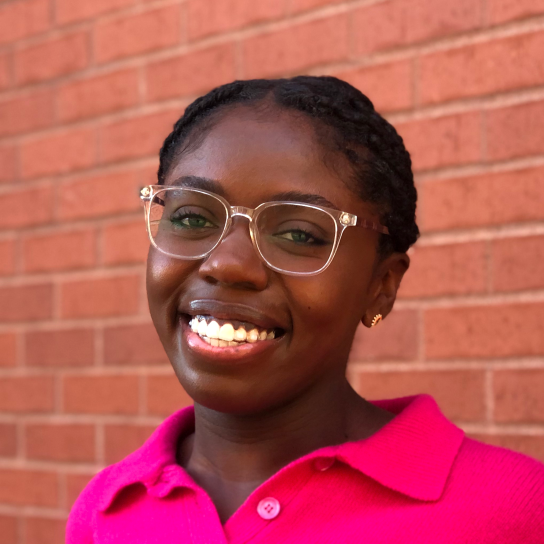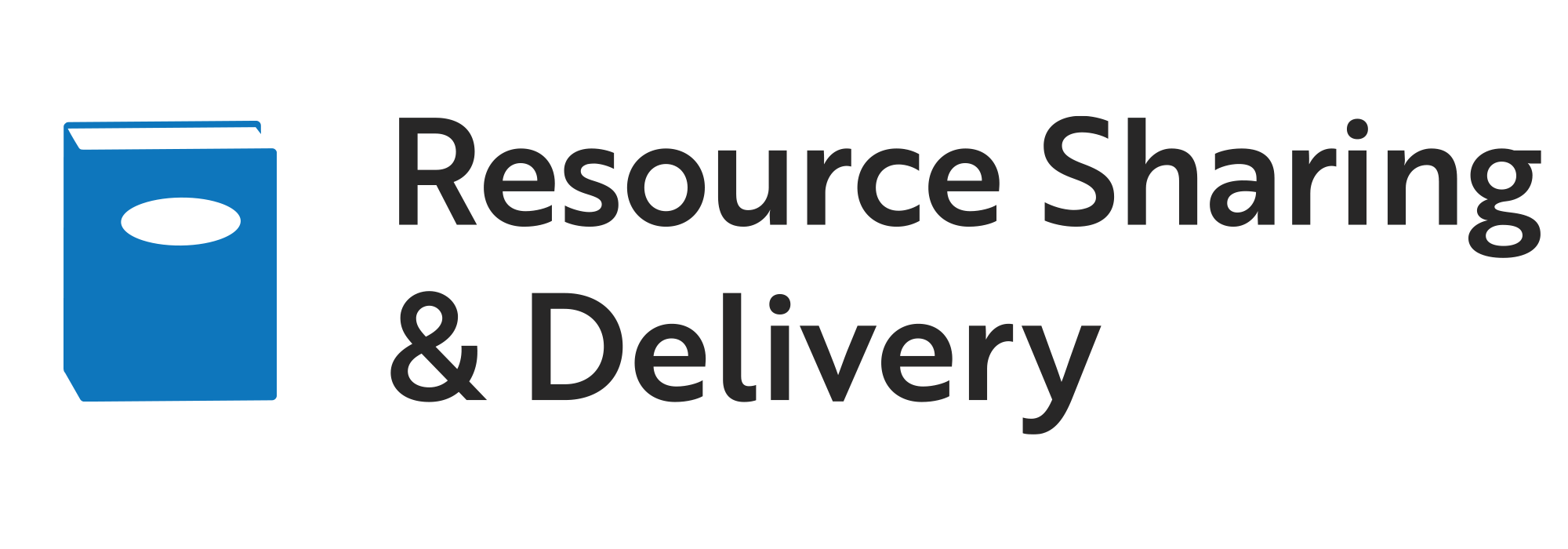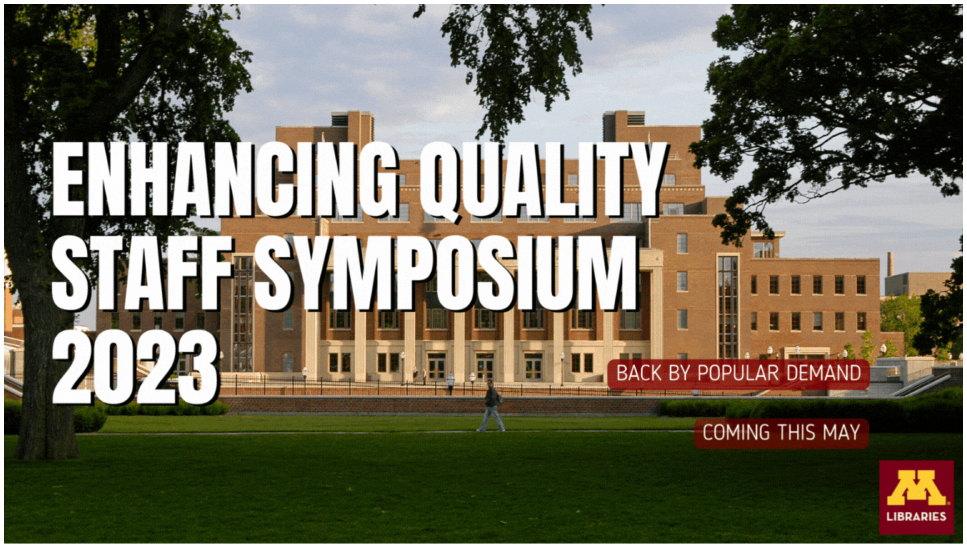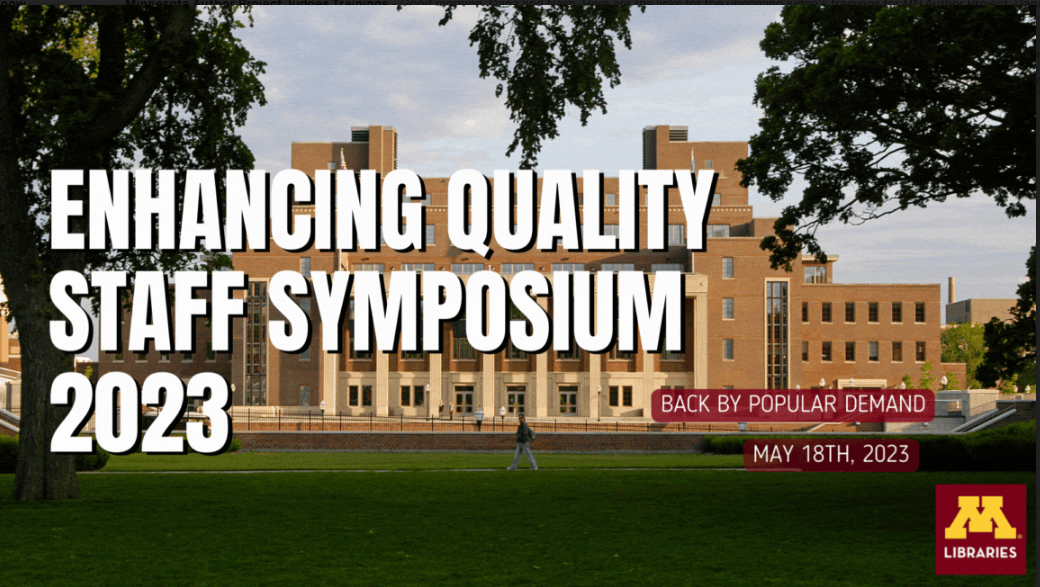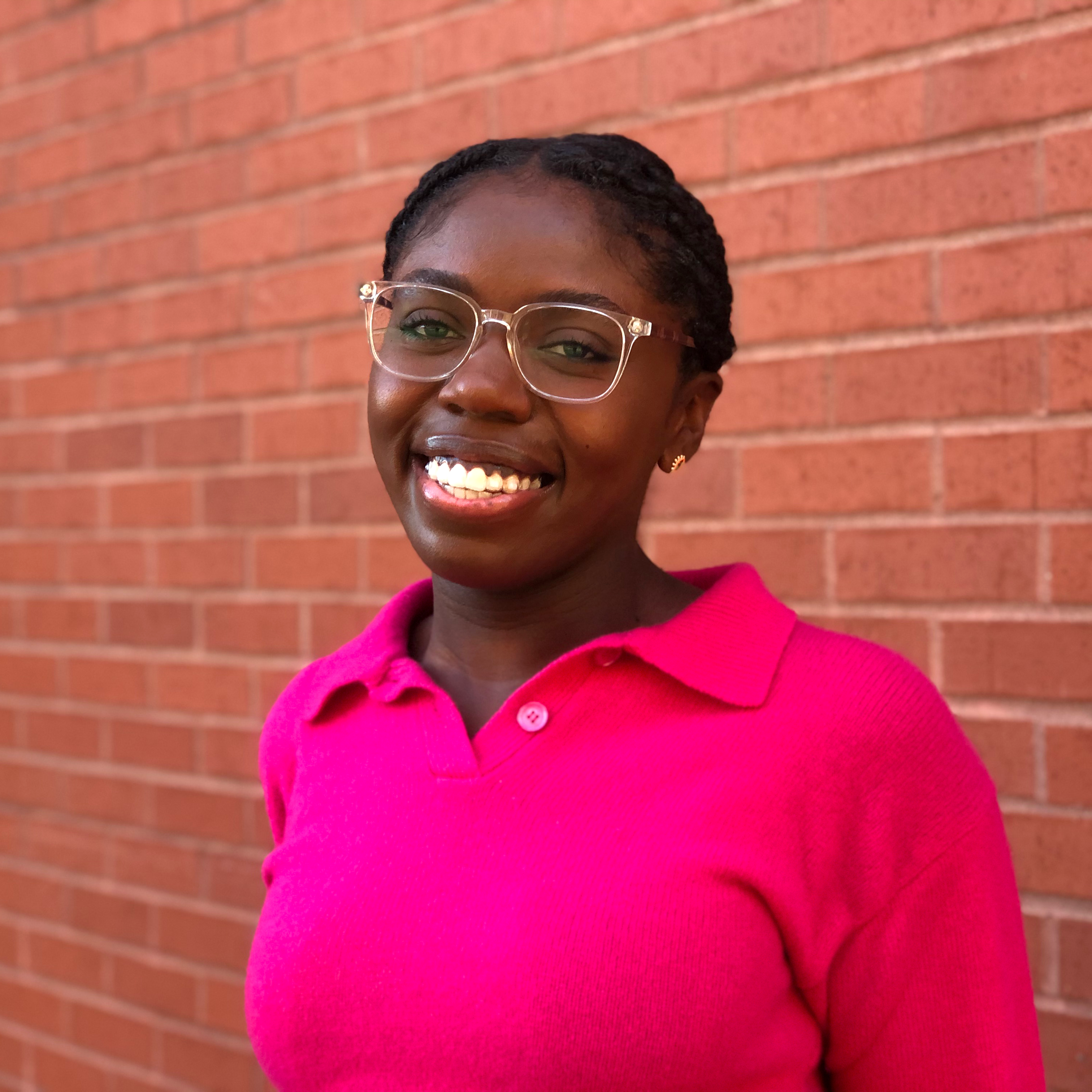by Olivia Moore
Quick Summary
Olivia Moore gives her thoughts on her first library-related conference, the 2023 Enhancing Quality Staff (EQS) Symposium.
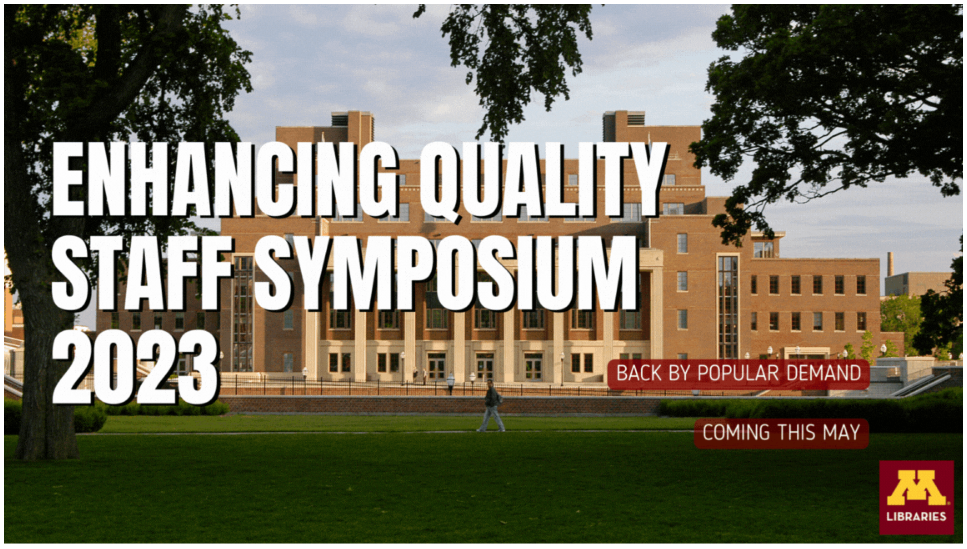
In May, I attended the University of Minnesota Libraries Enhancing Quality Staff Conference (EQS), an annual gathering for University and regional library staff of varying backgrounds to explore topics centering around common themes of growth, knowledge, and understanding. Sessions ranged from the science behind the state's apple breeding to walking tours of special collections and historic auditoriums. The program was laden with innovative topics and engaging speakers, giving not only food for thought, but for the stomach as well (lunch and snacks aplenty!). In my eyes, being new to the library space and this being my first conference, the occasion fulfilled its mission, providing attendees with a day of professional and personal growth.
The day started with a keynote from Dean of Libraries Lisa German, before breaking into separate sessions. One highlight for me was A Reckoning with History: The Mapping Prejudice Project, presented by Kristen Delegard, who herself is a fundamental part of a group of developers researching, documenting, and mapping historical racial covenants present in Minnesota and across the nation. These covenants are often lines of text in the property deeds to keep people of non-white descent from purchasing homes. This project, which requires the work of specialists and volunteers, identifies the magnitude of legal obstacles to homeownership, limiting access to employment, health and educational resources. With this information, Hennepin County has become the first county in the nation to have a list of these discriminatory practices. The Mapping Prejudice Project has inspired other counties in and out of state the of Minnesota to identify, record and reject racial covenants.
Another highlight was a tour of the University of Minnesota's Wangensteen Library. This historical library, consisting of biology and medical collections, contains materials and artifacts representing health and medicine from 1430 to 1945. In a newly renovated facility, rows of rolling shelves house curated collections of plant-based pharmaceutical products, vintage bottles of laxatives with presidential endorsements, well-intended infant feeding devices, Civil War-era amputation kits and many Italian pharmaceutical jars. The facility also contains over 73,000 print materials, which include rare books, manuscripts, pamphlets and medical documents from all over the world. Of the books on display, De Historia Stirpium - a botanical study by Leonhart Fuchs - was unique and vibrant, as handwriting and observational drawings of previous owners filled the margins and produced distinctive additions to the text. The Wangensteen Library also hosts educational tours and events throughout the year. A new exhibit, In Hot Water: Healing at the Hakone Hot Springs, explores the nineteenth-century manuscript Shichito no Shiori, a guide to hot springs in Japan and their medicinal properties. The display is open on weekdays until September 15.
EQS was a collaborative and refreshing day for staff to inquire and learn about several topics in many fields, not just specific to library practices. My day consisted of expanding my understanding of certain areas, as well as discovering brand new things. In that sense, the EQS experience is malleable, allowing for anyone to tailor their day to both familiar and new topics.
